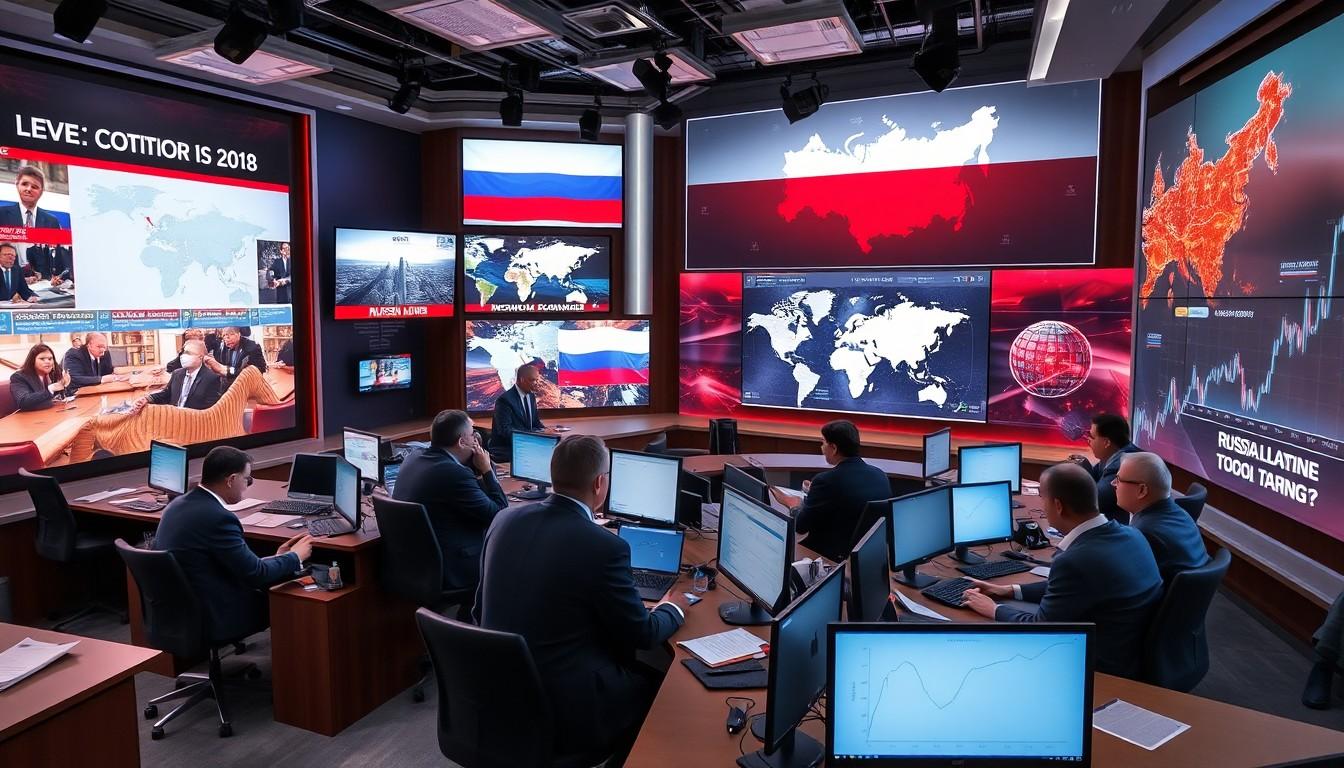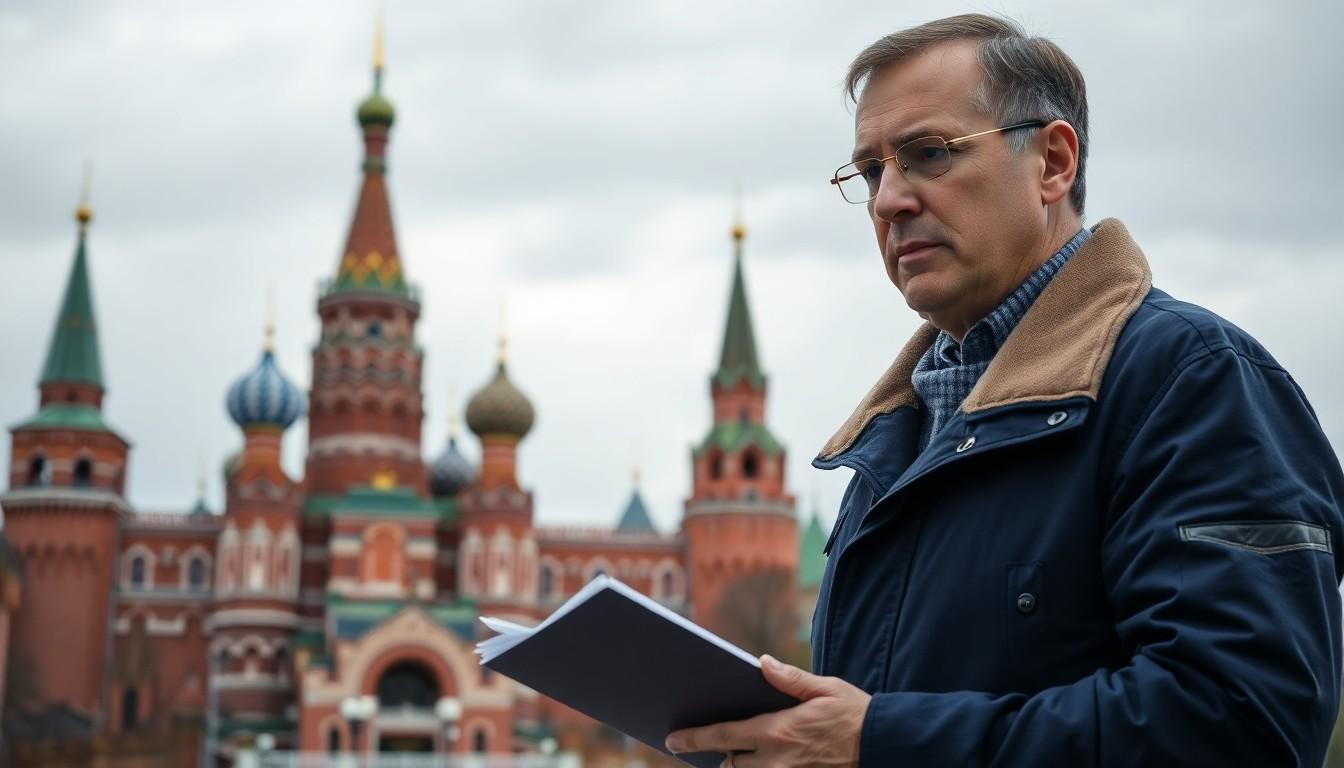In the ever-evolving landscape of global news, few names resonate like Reuters, especially when it comes to Russia. With its rich tapestry of history and politics, Russia offers a treasure trove of stories that keep journalists on their toes. Whether it’s the latest Kremlin antics or the intricacies of international relations, Reuters dives into the chaos with the precision of a ballet dancer navigating a minefield.
Reuters Russia
Reuters plays a crucial role in delivering comprehensive news coverage from Russia. The agency reports on various aspects, including political developments, economic changes, and social issues. Its journalists navigate the complexities of Russia’s government and society to provide accurate and timely information.
Increasingly, Reuters offers insights into Kremlin activities, shaping global perceptions of Russian policies. Through in-depth analysis and on-the-ground reporting, it highlights significant events and their implications. Political unrest, economic sanctions, and international relations often dominate the headlines.
Correspondents stationed within the country face unique challenges, including government scrutiny and censorship. Despite these obstacles, they strive for objective reporting, ensuring readers receive balanced perspectives. International audiences benefit from Reuters’ reliable coverage, which includes interpretations of government directives and public reactions.
Reuters also employs data-driven storytelling to enhance its narratives. Using statistics and analyses, it contextualizes information, making complex issues accessible. This approach fosters a deeper understanding of the multifaceted dynamics that define Russia today.
As events unfold, Reuters adapts to the rapidly changing landscape. The agency commits to maintaining high journalistic standards, which reinforces its credibility. Observers depend on Reuters for news updates that reflect the ever-evolving nature of Russian affairs.
Historical Context

Reuters holds a significant position in reporting on Russia’s intricate history and political dynamics. The agency’s extensive coverage showcases the country’s evolving landscape and the challenges faced by journalists.
Development of News Reporting in Russia
Traditional methods of news reporting in Russia have transformed over the years due to technological advancements and changing political climates. The rise of the Internet revolutionized access to information, leading to a more diverse array of sources. State-controlled media often skews perspectives, compelling independent outlets like Reuters to adapt quickly. As journalists leverage new platforms, they provide timely updates while navigating strict regulations. Digital tools empower reporters to deliver breaking news instantly, enhancing transparency in their coverage.
Key Milestones for Reuters in Russia
Several key milestones mark Reuters’ presence and impact within Russia. In 1991, the agency expanded its Moscow bureau, establishing a stronger foothold in the region. Reporting on pivotal events, such as the Chechen Wars and the annexation of Crimea, solidified its reputation for comprehensive coverage. The agency’s commitment to high standards earned respect, especially during turbulent times. Additionally, Reuters increasingly focused on economic reporting, reflecting significant developments in Russian markets. Upholding journalistic integrity, they continue to address pressing social issues while navigating the complexities of Russian politics.
Current Operations
Reuters actively engages in covering significant news events in Russia, delivering timely updates and comprehensive analysis on the country’s political, economic, and social landscapes. The agency’s commitment to factual reporting showcases its role as a key player in global news dissemination.
News Coverage Focus
Reuters prioritizes in-depth reporting on essential topics. Political developments receive heightened attention, particularly regarding Kremlin activities and international relations. Economic changes, such as sanctions and trade policies, also shape coverage, ensuring audiences are informed about Russia’s financial landscape. Furthermore, social issues, including human rights and public sentiment, play vital roles in their reporting. Journalists strive to deliver balanced perspectives, reflecting the diverse narratives within the country.
Challenges Faced by Reuters in Russia
Journalists encounter numerous challenges while reporting in Russia. Government scrutiny presents significant hurdles, as authorities often impose restrictions on media outlets. Censorship impacts the ability to report freely, complicating efforts to maintain objectivity. Additionally, the risk of harassment or intimidation for journalists remains a pressing concern. Adapting quickly to the dynamic political and social environment tests their resilience. Despite these challenges, Reuters continues to prioritize high standards in journalism while navigating this complex landscape.
Impact and Influence
Reuters significantly influences how the world perceives Russia, delivering vital information that shapes public opinion. The agency’s commitment to thorough reporting and analysis ensures that audiences receive balanced views on contentious topics.
Role in Shaping Public Opinion
Reuters plays a crucial role in informing global perspectives on Russian policies. The agency’s in-depth reporting highlights political changes and social issues, which influence audience understanding. Coverage of Kremlin activities provides context, allowing readers to grasp the complexities of Russia’s governance. By addressing human rights concerns and public sentiment, Reuters underscores key narratives within the country. This approach ensures that international observers remain informed about developments in Russia, ultimately shaping public discourse.
Comparison with Other Media Outlets
Comparing Reuters to other media outlets reveals its distinctiveness in journalistic integrity. Unlike state-controlled media, Reuters emphasizes objective reporting amid Russia’s challenging environment. Its comprehensive analysis stands out alongside competitors, who may not cover sensitive political issues as thoroughly. Journalists at Reuters often face similar challenges to their peers but prioritize accuracy and fairness in their reporting. This commitment to high standards has earned the agency respect, particularly while reporting on pivotal events like the annexation of Crimea. Readers seeking reliable information find Reuters a key resource amidst a sea of varying narratives.
Future Outlook
The future of news reporting in Russia presents both opportunities and challenges. Journalists increasingly utilize digital platforms, adapting their coverage to reach broader audiences. Predictions suggest that Reuters will enhance its data-driven approach, which contextualizes evolving situations in real-time. Continuous engagement with local sources may improve sourcing accuracy and depth in reporting. Increased scrutiny by the Russian government, however, could complicate this pursuit, necessitating innovative strategies to maintain journalistic integrity.
Predictions for News Reporting in Russia
Emerging trends predict greater reliance on digital tools for news dissemination in Russia. Reporters might embrace social media platforms, engaging audiences with immediate updates. This shift could enhance public engagement and encourage interactive storytelling. Legacy media’s decline may push independent outlets like Reuters to explore new avenues for outreach. Public demand for transparency may further influence reporting practices, emphasizing the growing need for accuracy and timeliness in news coverage.
Possible Changes in Media Policies
Potential changes in media policies may reshape the landscape for journalists worldwide. Governments could increase restrictions on independent reporting, challenging outlets to adapt swiftly. Anticipated reforms might spur a stringent regulatory environment, resulting in more significant pressure on news organizations. In response, Reuters may implement new safety protocols to protect its correspondents from government repercussions. Evolving international relations will likely influence these policies, impacting how Russia engages with global media narratives.
Fostering Informed Discussions
Reuters continues to play a vital role in delivering accurate and timely news about Russia’s intricate political and social landscape. The agency’s commitment to high journalistic standards sets it apart from state-controlled media, ensuring that international audiences receive balanced perspectives.
As the environment for journalism in Russia evolves, Reuters adapts by leveraging digital platforms and data-driven storytelling. This approach not only enhances public understanding but also reinforces the agency’s credibility as a trusted source of information.
With ongoing challenges such as government scrutiny and censorship, Reuters remains steadfast in its mission to provide comprehensive coverage of Russia’s developments, shaping global perceptions and fostering informed discussions.

